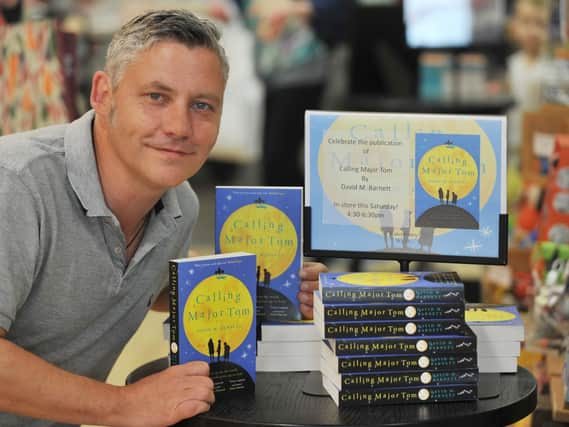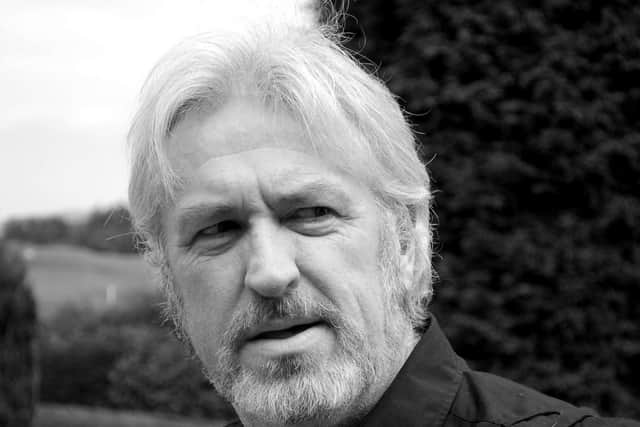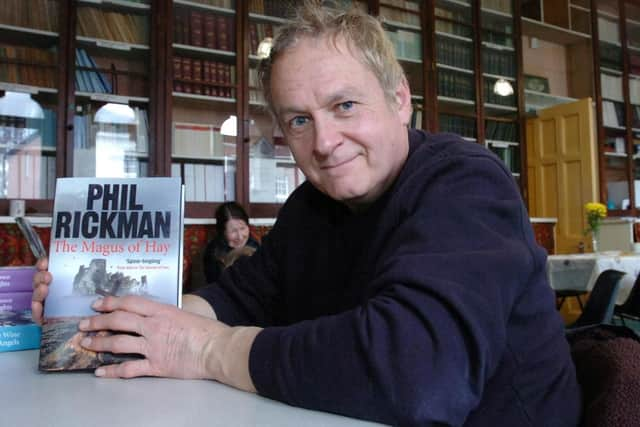Ex-journalists finding success as authors


And while three Wigan hacks who have gone on to literary fame are keen to acknowledge the importance of their time writing for the borough’s newspapers, all are adamant it has nothing to do with the imaginative element of creating novels.
Best-selling crime writer Paul Finch, prolific supernatural author Phil Rickman and Yorkshire-based writer David Barnett all cut their teeth crafting sentences at either the Post or the Observer.
Advertisement
Hide AdAdvertisement
Hide AdThe trio say they all learned much from their time covering the daily news grind but all took subtly different things into other fields of writing.


Standish author Paul, responsible for the string of hugely-successful and gritty Heck books, said: “I couldn’t have become a writer without being a journalist.
“As a journalist you learn about a side of life most people never see and you learn how to write. It’s a hard, tough world you are embroiled in.
“I was also in the police and there you are involved in that side of life but not taught how to write. You are also in the firing line.
Advertisement
Hide AdAdvertisement
Hide Ad“At the paper you are writing stories about the seamier side of life, talking to people who are bereaved who are victims of crime and then putting it all into good prose.”


David, who recently scored his biggest literary hit to date with Calling Major Tom, said: “My years as a journalist definitely informed my career as a fiction author. You get to meet such a diverse range of people from all walks of life.
“One of the most important things in writing is to have believable characters and especially somewhere like Wigan you get access to people who provide a great inspiration for characters and storylines.”
Phil, who has now penned more than 30 books, said: “I didn’t think journalism would be an ideal place to learn but it was.
Advertisement
Hide AdAdvertisement
Hide Ad“When I started I thought writing a sentence meant one sentence leading on to the next one.


“As a journalist you have no flab in the story and I thought writing would mean being able to stretch out a bit.
“I was wrong. Writing fiction you still have to keep it tight and you can’t waste words. The Wigan Evening Post turned out to be very useful in the end.”
The three writers took rather different paths into their literary endeavours, although all of them share a lifelong passion for wanting to see their names in print in the fiction section of bookstores.
Advertisement
Hide AdAdvertisement
Hide AdBoth Paul and David say redundancy (though neither lost jobs in Wigan) was actually a spur to concentrate on their creative writing, although Paul initially followed his interest in screenplays and began writing for popular TV show The Bill.


In fact, he says his string of gritty crime-solving books came about almost by accident. He said; “My agent kept pestering me, saying if I could write a hard crime novel they could get a good deal for it.
“I wrote something which I thought had the same atmosphere as the TV show The Shield, which I loved because it was a real warts-and-all portrayal of inner-city police work.
“Harper Collins bought it, commissioned a load more and the rest is history.”
Advertisement
Hide AdAdvertisement
Hide AdDavid had already juggled his newspaper work with penning a trilogy of steampunk novels and a couple of other books but the end of his day job in 2015 was a springboard to move up to the next level.
He said: “It gave me the time to devote to writing, although I also combine fiction with freelancing, writing features for the national papers.
“It all came together quite nicely and I was able to sit down and properly spending time seriously writing a novel.
“Success has come quite late for me but Calling Major Tom has sold really well.”
Advertisement
Hide AdAdvertisement
Hide AdPhil, meanwhile, credits a chance meeting while working as a BBC radio employee in rural mid-Wales with getting his career started.
He said: “I was going to interview one of Wales’ most famous living authors at the time. I was trying to write something and my wife was reading it in the car on the way up there.
“Without any real hope of anything I just mentioned I was trying to write a novel and she told me to leave it for her to look at. I said she didn’t want to read first draft stuff but she said she enjoyed looking at anything like that.
“I didn’t realise she was fiction editor for a publisher and shortly after that I had a contract.”
Advertisement
Hide AdAdvertisement
Hide AdHowever, the three writers have very different views on putting the borough and their experiences here into print.
Paul has always been keen to address the lack of crime series set in this part of the world by making Heck’s local patch distinctly North West, if not always identifiable as Wigan.
David, too, is keen for local flavour to come across in his writing in Calling Major Tom.
He said: “It was really nice to be able to draw on my years living in Wigan and weave it into a novel. I was born in Wigan, brought up there and obviously worked there at the paper for many years.
Advertisement
Hide AdAdvertisement
Hide Ad“Not enough novels are set in the north and certainly not enough feature working-class people. Most things seem to be set in London or in a middle-class setting and I want to redress the balance a bit.”
Phil, on the other hand, derives most of the inspiration for his spooky tales from the legends and folklore of the remote Welsh area near Hay on Wye where he lives.
He said; “When I got here I realised I was surrounded by all these fascinating stories. Living in a place like this it’s easier to believe in these supernatural things.
“it’s like the origin of the Hound of the Baskervilles. Everyone thinks it’s in Devon but it’s not.
Advertisement
Hide AdAdvertisement
Hide Ad“The closest I got to Wigan was a story about the bog bodies around the Cheshire and Derbyshire area. If some of the accents seem a bit Wigan in that book it’s probably not an accident.
“This is the darkest area of the country. Herefordshire officially has the least light pollution in England and it’s a little bit darker still now I’m here and writing.”
Phil, Paul and David are all hard at work on their next fiction work.
Paul is putting the finishing touches to a free Heck novella he has written for the character’s legions of fans for Christmas and says another short adventure will probably be released some time next year ahead of his next full-length book hitting the shelves around August.
Advertisement
Hide AdAdvertisement
Hide AdDavid, meanwhile, is diversifying into comic books with an intriguing-sounding collaboration with a US company called Punks Not Dead, having just finished editing his next novel The Lonely Hearts Cinema Club which is set in a Morecambe nursing home.
Phil is ploughing on with the next chiller in his series of books about Merrily Watkins, a female priest and exorcist.
Although he is reluctant to be drawn too much on what the novel is about, he says it will feature the Wye valley and its links to poet William Wordsworth.